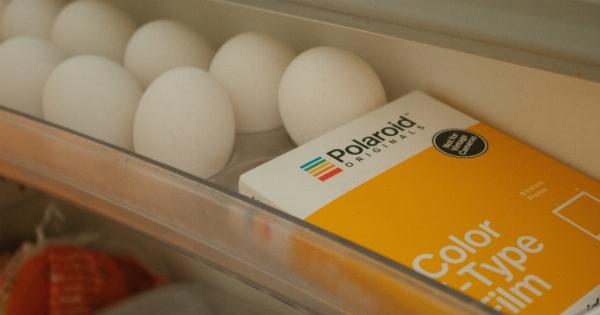Many homeowners underestimate the importance of regularly cleaning and maintaining their refrigerators.
It’s easy to neglect this household appliance since it seems to work just fine, but the truth is, ignoring refrigerator hygiene can lead to various health risks and other hazards. From contaminated food to energy inefficiency, the dangers of neglecting your refrigerator hygiene are far-reaching.
In this article, we will explore the consequences of not paying enough attention to cleaning and maintaining your refrigerator and provide you with essential tips on how to keep it in top condition.
Risk of Food Contamination
One of the most significant dangers of neglecting refrigerator hygiene is the risk of food contamination.
A dirty refrigerator can become a breeding ground for various types of bacteria, mold, and mildew, which can contaminate your food and potentially make you sick. This is especially concerning for perishable foods like meat, dairy products, and leftovers. When these items come in contact with harmful microorganisms, it can result in food poisoning or other foodborne illnesses.
Unpleasant Odors
A neglected refrigerator often develops unpleasant odors. The combination of spilled food, expired items, and bacteria growth contributes to a foul smell that can permeate not only the refrigerator but your entire kitchen.
These odors can be difficult to remove once they have taken hold, and they can even transfer their scent to your fresh produce and other food items, making them unappetizing. Keeping your refrigerator clean and free from lingering odors is crucial for maintaining a hygienic and pleasant kitchen environment.
Energy Inefficiency
Did you know that neglecting your refrigerator hygiene can also result in increased energy consumption? When your refrigerator coils and vents become coated with dust, dirt, and grime, it hampers the appliance’s ability to cool efficiently.
This forces the refrigerator to work harder and consume more energy to maintain the desired temperature. Not only does this lead to higher energy bills, but it also puts unnecessary strain on the refrigerator’s components, potentially shortening its lifespan.
Decreased Food Freshness and Shelf Life
A dirty and disorganized refrigerator can impact the freshness and shelf life of your food. When spills and stains are not promptly cleaned, they can cause cross-contamination between different food items.
It can also lead to the growth of mold and bacteria, accelerating food spoilage. By neglecting proper refrigerator hygiene, you put yourself at risk of wasting more food and having to restock your groceries more frequently, which can take a toll on your budget.
Pest Infestations
Neglected refrigerators can attract unwelcome guests in the form of pests. Crumbs, food residue, and spills left uncleaned become enticing food sources for insects like ants, cockroaches, and even rodents.
These pests can not only contaminate your food but also spread diseases. Once pests infest your refrigerator, it becomes even more challenging to eliminate them, as they can breed rapidly and find new hiding spots. Maintaining a clean and hygienic refrigerator is an essential step in pest prevention.
Ice and Water Dispenser Contamination
If your refrigerator comes with an ice and water dispenser feature, neglecting its hygiene can pose additional risks.
Over time, mineral deposits, mold, and bacteria can build up in the dispenser mechanism, contaminating the ice and water that it dispenses. This can not only affect the taste and quality of the water but also introduce harmful microorganisms into your system. Cleaning and sanitizing the ice and water dispenser regularly is crucial to ensure safe consumption.
Increased Risk of Allergies
A dirty refrigerator can exacerbate allergies and respiratory issues. Mold and mildew, commonly found in neglected refrigerators, release spores that can trigger allergies and respiratory symptoms in susceptible individuals.
These spores can spread through the air and contaminate the food stored in the refrigerator. Regular cleaning, proper ventilation, and prompt elimination of any mold or mildew growth are essential in minimizing the risk of allergies and respiratory problems.
Difficulty in Locating Items
A cluttered and disorganized refrigerator makes it harder to locate and access items. When leftovers and expired food items are not promptly removed, they take up valuable space and create confusion about what is edible and what is not.
This can lead to an accumulation of food waste and could cause you to overlook fresh food items that get hidden behind clutter. By maintaining good refrigerator hygiene, you can keep your fridge organized, ensuring that you use up your groceries efficiently and reduce food waste.
Malfunction and Costly Repairs
Neglected refrigerators are more prone to malfunction and breakdowns, leading to costly repairs or even the need for a replacement. A dirty appliance accumulates dust and debris on its vital components, such as the condenser coils and fan.
This buildup restricts airflow and causes the refrigerator to overheat, potentially damaging its motor and other internal parts. By neglecting proper hygiene and maintenance, you risk facing unexpected breakdowns and the associated expenses.
Unsightly Appearance
A refrigerator covered in stains, spills, and food debris detracts from the overall aesthetic of your kitchen. It creates an unappealing visual impression, especially if you often entertain guests or have an open kitchen layout.
Additionally, the accumulation of dirt and grime can damage the exterior finish of the refrigerator, leading to permanent discoloration or deterioration. By maintaining good refrigerator hygiene, not only will your appliance operate efficiently, but it will also enhance the visual appeal of your kitchen.
Tips for Maintaining Refrigerator Hygiene
Now that you are aware of the dangers of neglecting your refrigerator hygiene, here are some essential tips to help you maintain a clean and hygienic refrigerator:.
1. Regularly Clean and Sanitize
Wipe down the interior of your refrigerator at least once a month using a mild detergent solution. Pay extra attention to spills, stains, and lingering odors. Remove all the shelves, drawers, and door compartments to clean them thoroughly.
Remember to sanitize any removable parts using a mixture of vinegar and water, as this helps eliminate bacteria and neutralizes unpleasant odors.
2. Practice Proper Food Storage
Proper food storage is imperative for refrigerator hygiene. Store raw meat, seafood, and poultry in leak-proof containers on the lowest shelves to prevent any cross-contamination.
Wrap or cover all food items to prevent odor transfer and maintain their freshness. Discard any expired or spoiled food promptly to avoid mold and bacteria growth.
3. Keep a Regular Cleaning Schedule
Prevention is key when it comes to maintaining refrigerator hygiene. Create a regular cleaning schedule to ensure that spills and stains are promptly cleaned. This includes wiping up any spills as soon as they occur.
By adhering to a cleaning routine, you can prevent the buildup of dirt, grime, and bacteria, keeping your refrigerator in excellent condition.
4. Organize and Rotate Your Food
Maximize the space in your refrigerator by organizing your items efficiently. Keep similar food items together and use clear containers or storage bins to separate different categories of food.
This helps you locate items easily and reduces the chances of overlooking perishable items. Additionally, make it a habit to rotate your food so that older items are used first, reducing food waste.
5. Clean the Coils and Vents
The condenser coils and vents at the back or beneath your refrigerator require regular cleaning. Use a soft brush or a vacuum cleaner to remove dust, dirt, and debris from these components.
This will improve the refrigerator’s efficiency and prevent unnecessary energy consumption.
6. Check the Door Seals
Make it a habit to inspect the door seals regularly. Damaged or loose seals allow warm air to enter the refrigerator, making it work harder to maintain the desired temperature.
Wipe them down with a soapy solution and ensure they are free from dirt and debris. If the seals are cracked or warped, consider replacing them to maintain energy efficiency.
7. Avoid Overstuffing
Resist the temptation to overcrowd your refrigerator. Overstuffing prevents proper airflow and can lead to uneven cooling. The refrigerator should be at least two-thirds full but not completely packed.
Allow for adequate circulation of air to ensure that everything remains at the correct temperature.
8. Clean the Ice and Water Dispensers
If your refrigerator has an ice and water dispenser feature, take the time to clean it regularly. Follow the manufacturer’s instructions to disassemble, clean, and sanitize the parts.
This will prevent the buildup of mineral deposits and bacteria, ensuring that you have clean and safe ice and water.
9. Use Baking Soda for Odor Control
Place an open box of baking soda in your refrigerator to absorb any lingering odors. Baking soda is an excellent natural deodorizer that helps neutralize unpleasant smells. Replace the box every three months for continuous odor control.
10. Perform a Deep Clean Annually
In addition to regular maintenance, perform a deep clean of your refrigerator at least once a year. This involves emptying the appliance completely, removing all shelves and drawers, and cleaning every nook and cranny.
Thoroughly wipe down the interior, including the walls and ceiling. By doing a deep clean annually, you can eliminate any hidden dirt or bacteria and keep your refrigerator in optimal condition.
Conclusion
The dangers of neglecting your refrigerator hygiene cannot be overstated.
From food contamination and increased energy consumption to pest infestations and allergies, the consequences of a dirty and neglected refrigerator can have detrimental effects on your health, finances, and overall well-being. By following the essential tips outlined above, you can ensure that your refrigerator remains clean, hygienic, and in proper working condition for years to come.






























